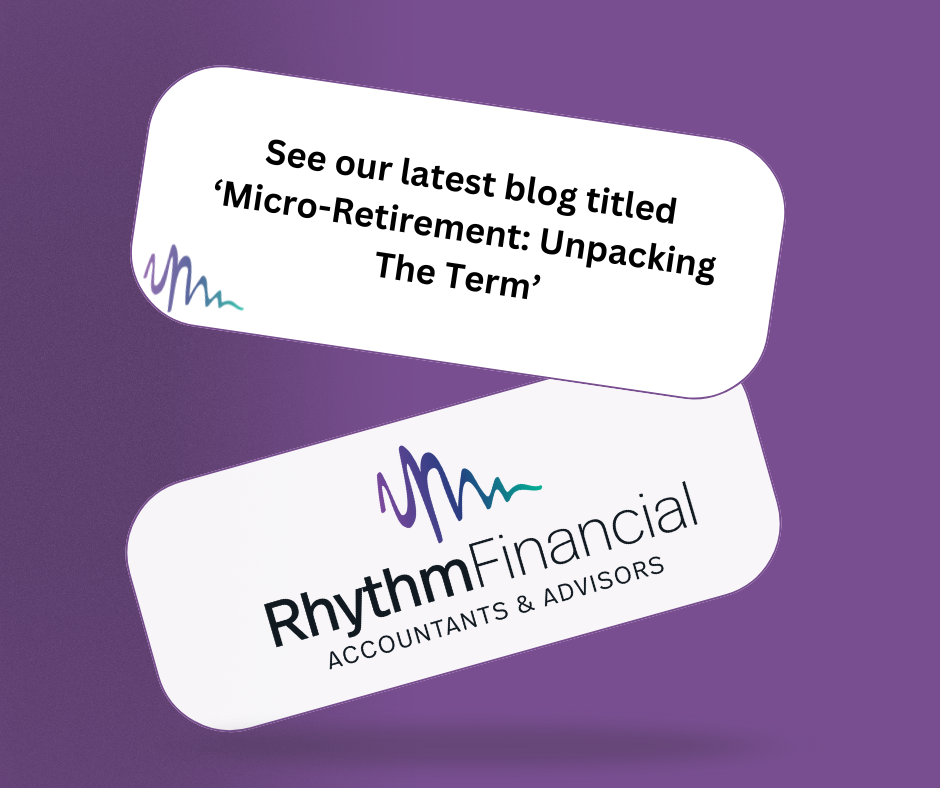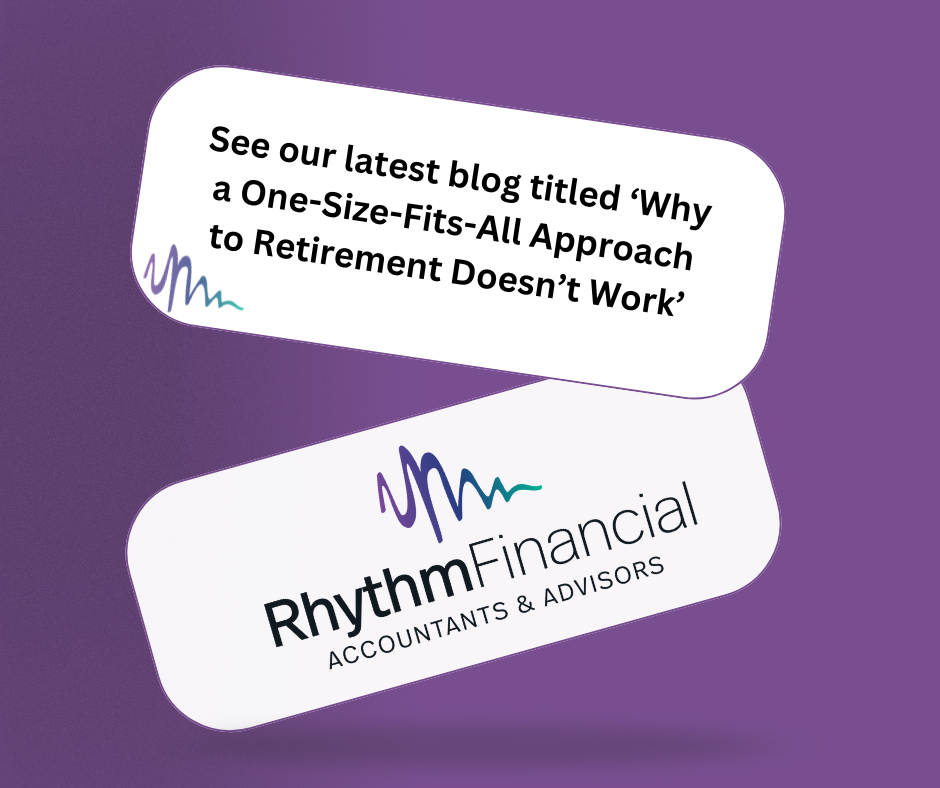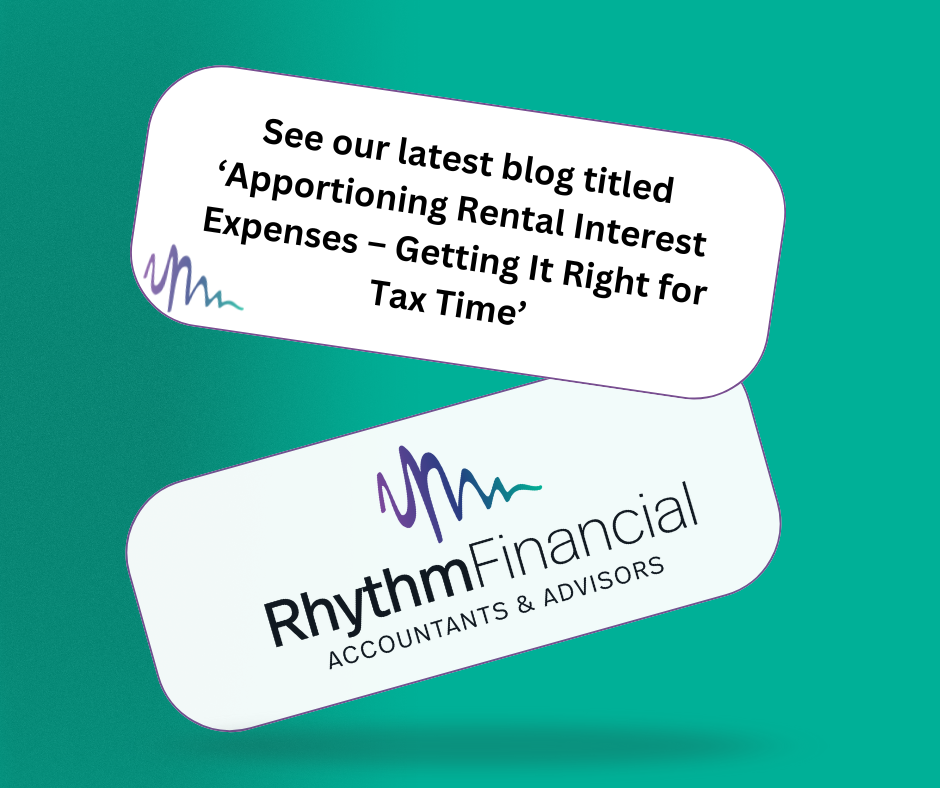Micro-Retirement: Unpacking The Term
- Rhythm Financial
- Aug 4
- 2 min read
Micro‑retirement is becoming a mainstream career trend, especially among younger generations, as a way to prevent burnout by taking purposeful breaks during one’s working life rather than waiting until a traditional retirement at age 65.
But while the benefits are real, this approach also carries financial and professional risks that need careful consideration.
What Is a Micro‑Retirement?
Micro‑retirements are extended, intentional pauses from full‑time work often lasting several months to a year, intended for rest, travel, personal growth, or pursuing passions such as writing, volunteering, or starting a side project. Unlike a weekend getaway, these breaks require serious planning and budgeting.
The Appeal: Recharge, Reset, Reimagining Work
Mental Health and Burnout Prevention: Extended breaks offer space to recharge mentally and physically. Gen Z, in particular, is embracing the trend to avoid chronic stress and enhance creativity and energy.
Personal Fulfilment: It’s a chance to explore the world, develop new skills, or dive into passion projects without the constraints of full-time work.
Life-Work Balance Reset: Instead of deferring freedom until retirement, micro‑retirements let individuals live life in phases, their careers become a marathon punctuated by intentional living.
Risks & Challenges to Consider
Financial Security: Without income, savings are depleted, and retirement contributions may stall. It’s recommended to save at least six months’ expenses plus a buffer (20%) before taking a break.
Career Momentum: Extended gaps can be red flags for some employers. Skills may become outdated, and re-entry into the workforce could take longer than expected.
“Scarring” from Gaps: There is a potential for reputational and financial penalties, such as being overlooked for future roles or promotions.
Making Micro‑Retirement Work
Define Your Why & Timeline: Be clear about what you want to achieve, travel, mental reset, or learning, and set a realistic timeframe.
Plan Your Finances Thoroughly: Budget for living costs, healthcare, travel, and emergencies. Build a cushion and explore passive income, freelancing, or remote work options.
Communicate with Stakeholders: Whether negotiating sabbaticals or exiting a role, honest planning ensures smoother transitions and preserves professional relationships.
Micro‑retirement is not just a trendy notion; it’s a shifting paradigm in how modern workers view a fulfilling career and life balance.
With thoughtful preparation, financial prudence, and exit/re-entry planning, it can be a powerful tool to safeguard well-being and refresh your sense of purpose. Still, it’s not a decision to take lightly, the rewards can be profound, but so can the risks.
Speak with one of our licensed advisers for more information about your potential situation, if a micro-retirement sounds like a feasible option for you.

Disclaimer For External Distribution Purposes
The information contained in this publication is for general information purposes only, professional advice should be obtained before acting on any information contained herein. The receiver of this document accepts that this publication may only be distributed for the purposes previously stipulated and agreed upon at subscription. Neither the publishers nor the distributors can accept any responsibility for loss occasioned to any person as a result of action taken or refrained from in consequence of the contents of this publication.




Comentarios